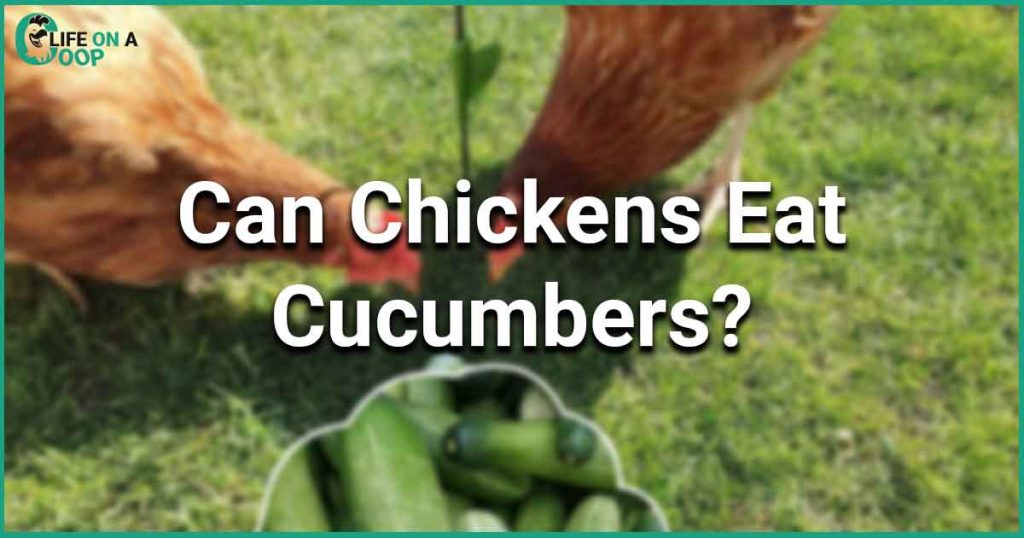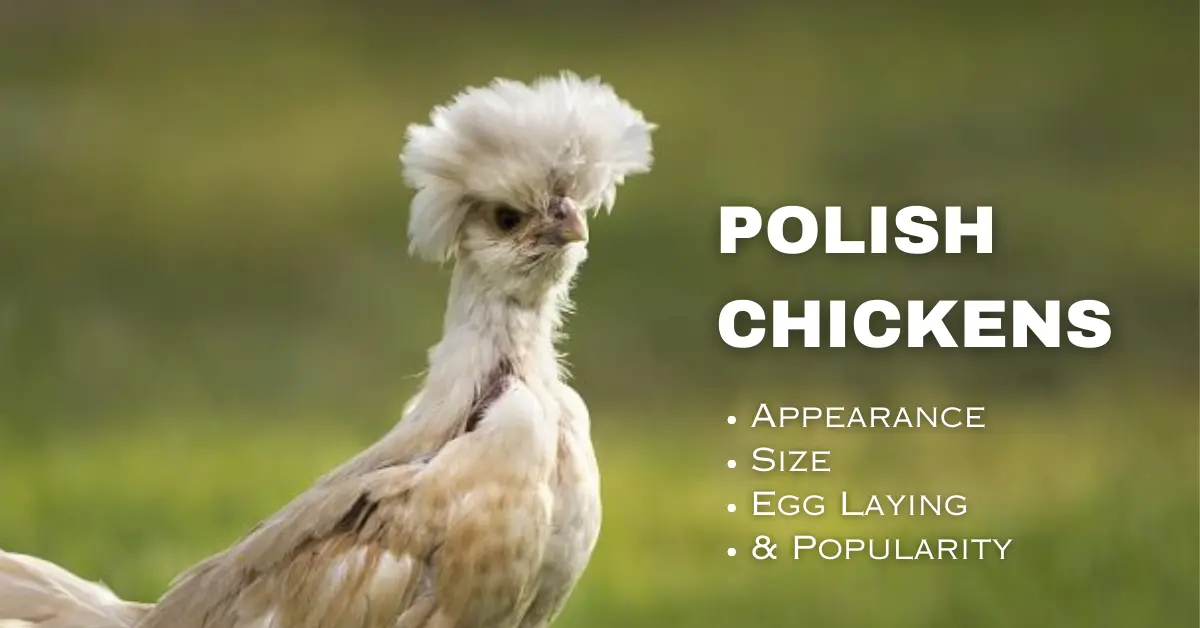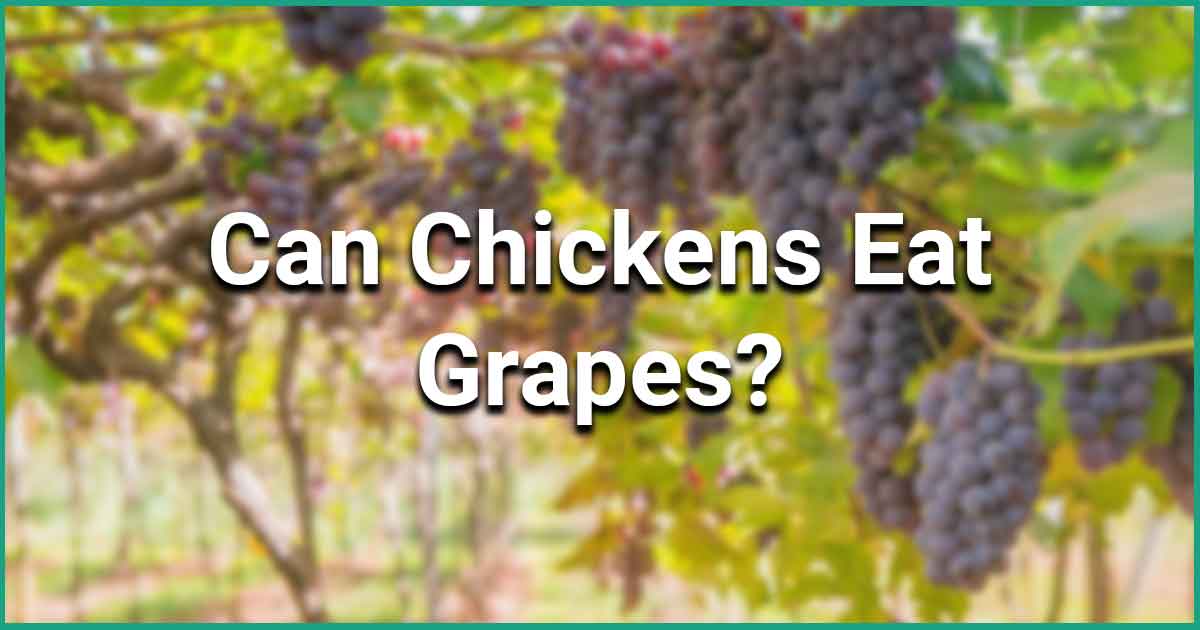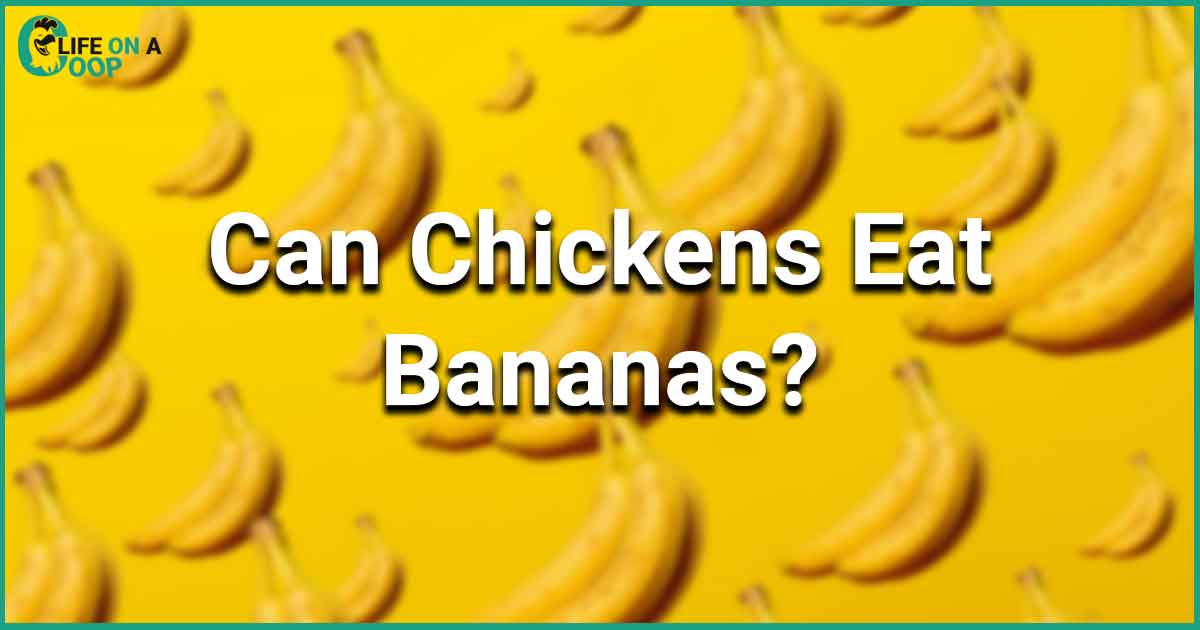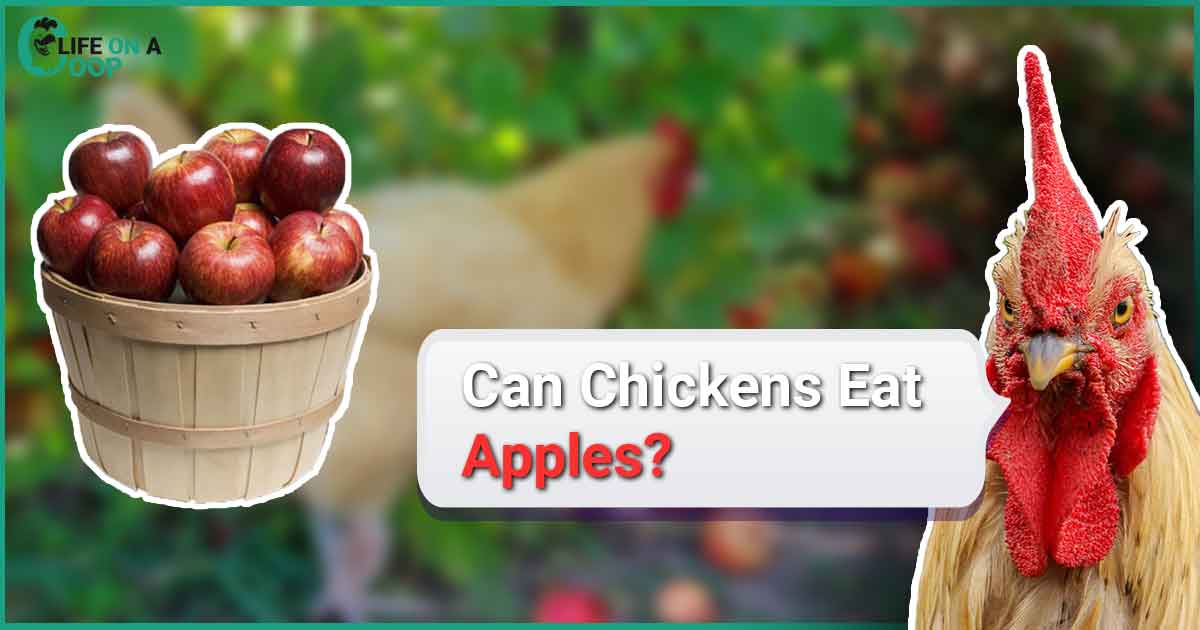Chickens are always looking for something to eat. scraps, bugs, grass – they’ll eat just about anything. But can chickens eat cucumbers?
Yes, Chickens love to eat cucumbers. They are not only safe for chickens to eat but are actually quite nutritious. Your backyard friends will surely bless you with some healthy eggs in return.
Here’s everything you need to know about feeding cucumbers to your chickens.
Table of Contents
ToggleCan Chickens Eat Cucumbers?
The answer to this question is generally yes. Cucumbers are a great source of low-calorie vitamins as well as keeping your chickens hydrated throughout the day.
Cucumbers contain essential minerals like phosphorus, sodium, and magnesium which can help keep your birds healthy. Chickens usually enjoy the crunchy texture of cucumbers.
Mixing cucumber with other vegetables and fruits like strawberries, carrots, or spinach can make a tastier snack for your chickens.
Just be careful not to feed too many cucumbers as part of their regular diet. Cucumbers are full of water content, which could lead to imbalances in electrolytes or cause watery droppings.
Choosing organic cucumbers is also important when feeding them to chickens. Harmful chemicals are present in nonorganic ones.
So, if you are confused about whether can chickens eat cucumbers, the answer is yes.
Can Chickens Eat Yellow Cucumbers?
Yes, chicken love to eat yellow cucumbers. Yellow cucumbers are perfectly riped and chickens are not that picky, they will eat anything they found on the ground.
There are two types of yellow cucumber, one is the normal ripe once and the other one is the Chinese lemon cucumber.
Some cucumbers start to get molds after getting overripe and they are not good for your feathered friends. Always check the outside surface of the yellow cucumbers before feeding.
Can Chickens Eat Cucumber Peels?
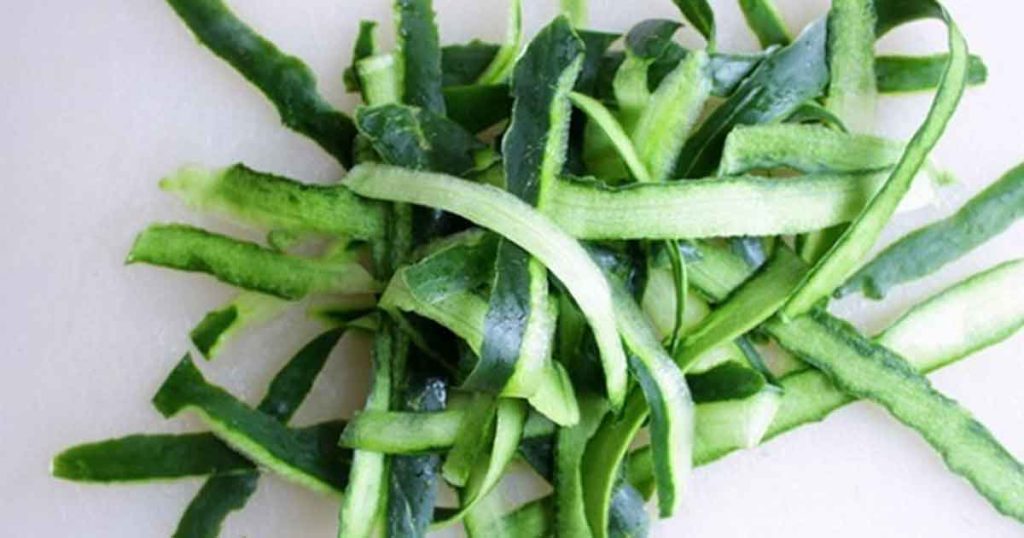
Farmers often peel cucumbers before feeding and waste the peel without knowing that chickens love to eat it too.
In many cases, cucumber peels can be safely fed to chickens as a source of extra fiber and hydration. Research suggests that the traces of vitamins A and C in cucumber peels can be beneficial for chickens health.
Cucumber peels are completely safe for your chickens, they should be washed before consumption. Additionally, always ensure you are providing your chickens with a balanced diet that also contains healthy grains and proteins.
With proper care and nutrition, you will have a healthy flock of birds ready to produce delicious eggs.
Can Chickens Eat Cucumbers Leaves?
Many backyard chicken owners might be surprised to know that their feathered friends actually enjoy eating cucumber leaves. These leaves are packed with vitamins and minerals to boost your flock health.
The foliage of cucumbers can prove a satisfying snack for chickens. Keep in mind to feed cucumbers in moderation as they contain 96% water according to Bupa.
Your feathered friend’s health should always be your priority when deciding what treats will make their way into the coop. Although cucumbers may not be the best choice for a regular treat, their leaves are perfectly safe.
Is Cucumber Seeds for Chickens?
Cucumbers in general are a safe food for chickens to eat, but the seeds may prove poisonous or difficult for chickens to digest.
You can feed cucumber and other vegetable seeds to your chickens if they are in a powdered form. The hard coating on the seed can damage the internal organs.
On the other hand, there are some types of cucumber seed that can be eaten as it is by your chickens. So it is important to know what type of cucumber seeds you are about to feed your feathered friends.
If you are not willing to feed them the seeds, you can use them to grow a cucumber farm.
5 Tips on how to Introduce Cucumbers to Chicken’s Diet
A cucumber can make for a nutritious, tasty snack for chickens, but it needs to be served in the right way. If you’re looking to introduce cucumbers into your chicken’s diet, there are five tips worth following:
- Ensure that all cucumbers you give your chickens are fresh and ripe.
- Chickens may also prefer if the cucumbers are peeled and chopped into manageable pieces before being served.
- Do not give them too many at once as this can upset their digestive system and prove detrimental.
- Always start small and build up gradually over time while monitoring their reaction carefully. This will help prevent an unpleasant surprise in the future.
- Adding some spices or flavorings to a cucumber can help make them more enticing. Just take care not to overdo it.
With these five tips in mind introducing cucumbers into your chicken’s diet should be easier than ever before.
Nutrients present in 100g of cucumbers
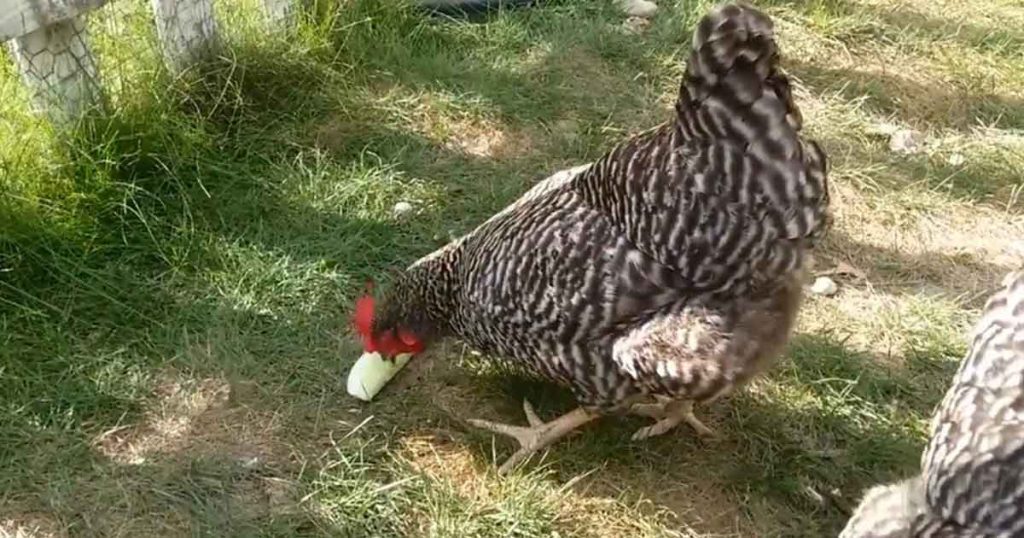
The following table shows how much nutrients are present in 100g of cucumbers. Cucumbers are a great source of water, Vitamin C, and Vitamin K for chickens. They can be a healthy and delicious treat for chickens but should be given in limited quantities as they are not very nutrient-dense.
| Nutrients | Amount per 100g |
|---|---|
| Water | 96.7g |
| Energy | 15 kcal |
| Protein | 0.65g |
| Total Lipid (Fat) | 0.11g |
| Carbohydrates | 3.63g |
| Fiber | 0.5g |
| Sugars | 1.67g |
| Calcium | 16mg |
| Iron | 0.28mg |
| Magnesium | 12mg |
| Phosphorus | 22mg |
| Potassium | 147mg |
| Sodium | 2mg |
| Vitamin C | 2.8mg |
| Vitamin K | 16.4 μg |
| Vitamin A | 33IU |
Potential Risks of Feeding Cucumbers to Chickens
Though cucumbers offer lots of potential health benefits to chickens, they also come with possible risks. Cucumbers are generally safe, though some caution should be taken in feeding them to chickens.
Keep in mind that feeding them in large quantities can lead to digestive issues such as diarrhea and gastrointestinal problems.
In addition, cucumbers have a water content of 95%, so if fed too much at once it can cause the chicken to become bloated and result in an electrolyte imbalance.
Furthermore, due to their high water content, cucumbers must be fed fresh and shouldn’t be stored before giving them to your chickens, or else the risk of bacterial growth increases significantly.
Lastly, ensure that the outer rind of the cucumber itself is removed prior to feeding, as the coating can contain poison which could prove dangerous for your feathered friends.
Frequently Asked Questions:
Can chickens eat raw cucumbers?
Yes, chickens can eat raw cucumbers. They are a healthy and delicious treat for chickens that are high in water content, vitamins and minerals.
Are cucumbers a natural dewormer for chickens?
Cucumbers are not a natural dewormer for chickens, but they can help to keep the chickens’ digestive system healthy.
Which foods are poisonous to chickens?
Chickens should not be fed chocolate, avocado, and apple seeds as they contain toxins that can be harmful to chickens.
Can Baby Chickens Eat Cucumbers?
Yes, baby chicks can eat cucumbers. Cucumbers are a great source of nutrients and to keep them hydrated in hot weather.
Can hens eat cucumber skin?
Yes, chickens can eat cucumber skin. However, it’s best to wash the cucumbers thoroughly before feeding them to your chickens to remove any pesticides or dirt.
Winner Winner Healthy Chickens
Cucumbers are not only a healthy snack for you, but they can be a healthy treat for your backyard chickens as well. Just like people, chickens need a variety of vitamins and minerals to stay happy and healthy.
Cucumbers are an excellent source of water and fiber and can help regulate a chicken’s digestive system. Introducing cucumbers to your chicken’s diet slowly will help them adjust and enjoy this tasty treat.
Be sure to avoid feeding your chickens cucumber seeds or skin as these can cause gastrointestinal problems. With a little trial and error, you’ll find the perfect way to include cucumbers in your chicken’s diet.
Do you have any other tips on feeding cucumbers to chickens? Let us know in the comments below.
Also Read:
Can chickens eat strawberries?
How to download chatgpt ios app?
Author
-

He has a background in environmental science and specializes in creating content about renewable energy, green transportation, and climate change. Ryan's writing is known for its engaging and easy-to-understand approach, making complex topics accessible to a wide audience.
[email protected] Lee Ryan

